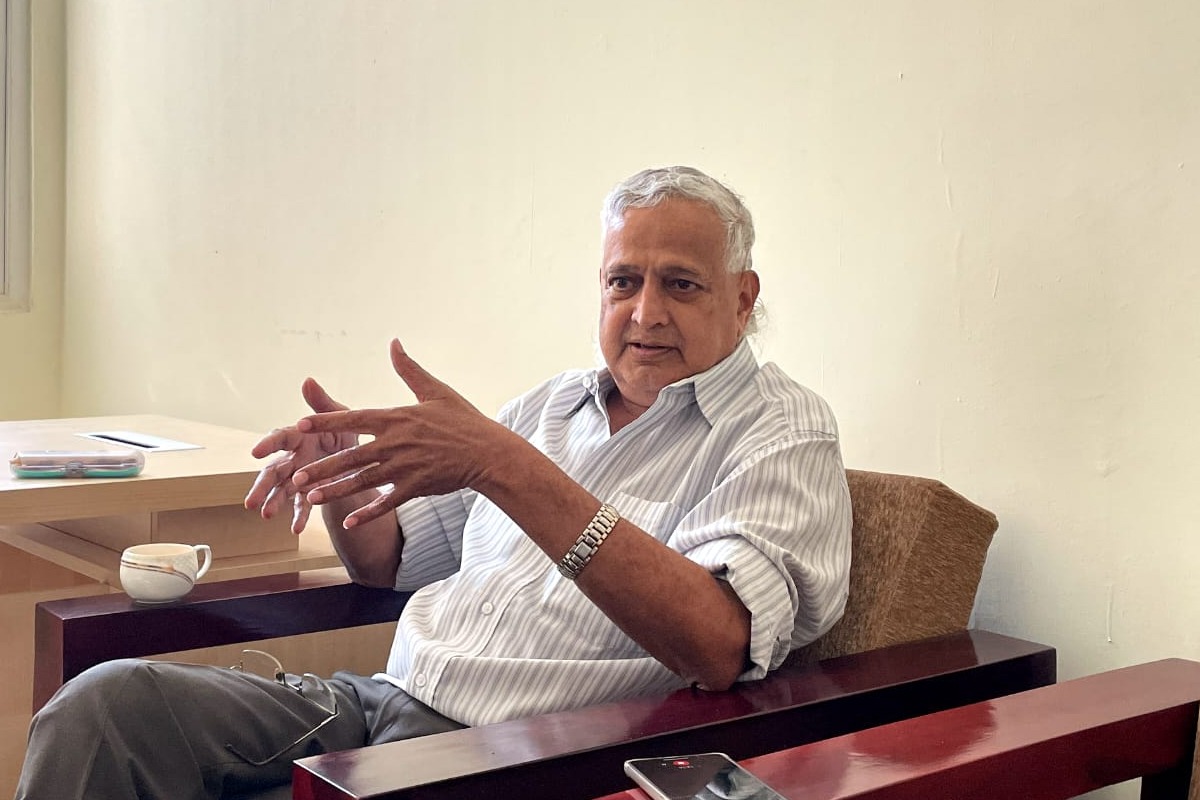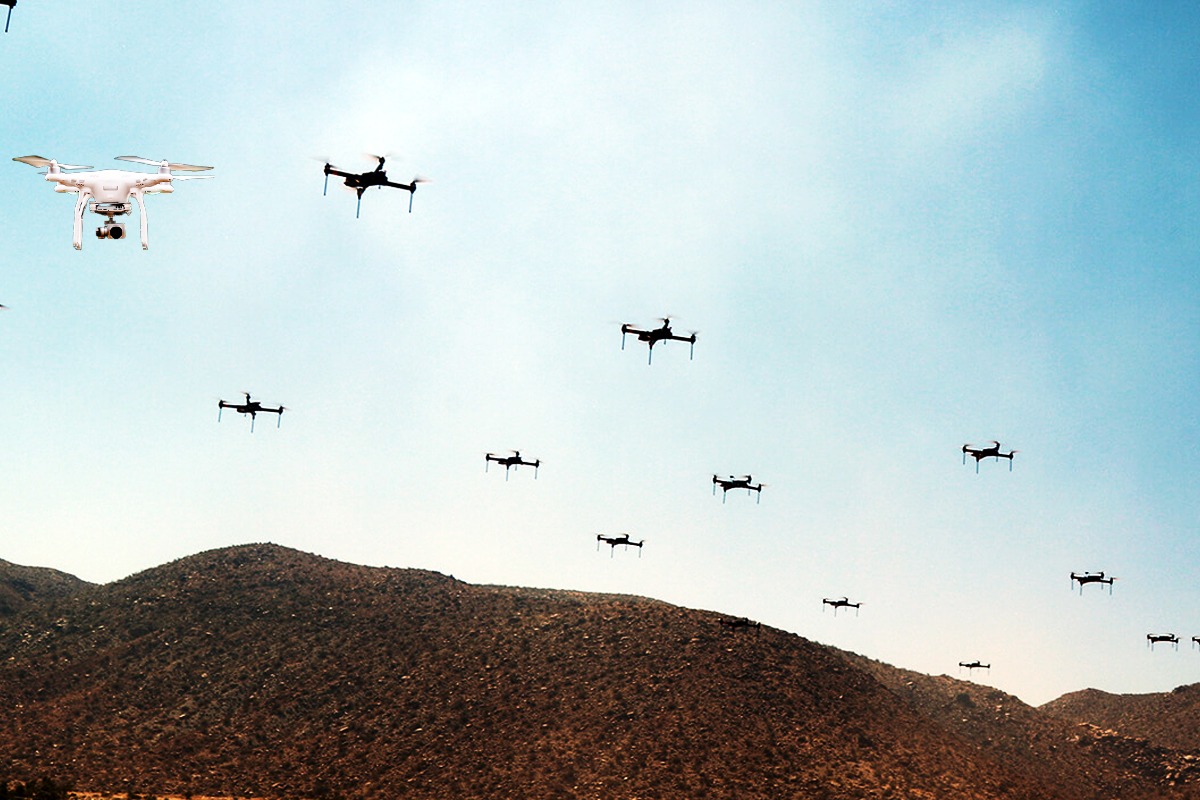India rose to the threats posed by unmanned aerial vehicles (UAVs) in June 2021 when two explosive-laden drones blew up portions of the Indian Air Force’s (IAF) base in Jammu. Nearly two months later, the recovery of a huge cache of ordnance dropped by Pakistan near the International Border (IB) raised alarm.
Recoveries of drones – often laden with drugs and arms and ammunition – along the Pakistan border became normal for forces in Punjab. The Border Security Force (BSF) recorded more than 190 sightings and shot down or recovered 22 drones along the Pakistan border last year.
According to its policy of waging a proxy war against India, Islamabad has been pushing tonnes and tonnes of heroin and other highly addictive substances into Punjab through these small machines. The world is already familiar with the use of drones in the murder of high-worth individuals.
“Drones are the new headache of security agencies worldwide. But India is particularly vulnerable given its geographical position. We have enemies on the western as well as the eastern border, so we should be more careful and prepared,” opined Delhi-based security expert Ranjit Rai.
Most of the drones eliminated by the BSF are easily available on the market and they use basic UAV technology. It is not difficult to detect, monitor, and destroy them. At present, BSF troops, at large, spot intruding drones with human eyes and destroy them by shooting.
ALSO READ: Pakistan is dropping drugs in India!
Advanced drones are the real challenge. “It is next to impossible for our border forces to successfully detect and destroy these flying machines, except for some select areas where the government has deployed sophisticated anti-drone systems,” said Milind Raj, the founder of Lucknow-based drone startup Roboz.in.
An anti-drone system is a machine that can detect and destroy drones using both “soft kill” and “hard kill” options. Soft kill refers to jamming intruding drones, rendering them ineffective, while hard kill destroys drones with a direct hit – by firing bullets or using laser guns.
According to reports, the BSF deployed 30 anti-drone systems along the Pakistan border in Punjab last year. All three services – Army, Air Force and Navy – have also placed orders for these systems to tackle this fast-emerging threat.
“What we are witnessing is just the beginning of the danger that is yet to come – swarm drone attacks,” said Milind, adding, “advanced drones are capable of carrying out many tasks in a coordinated manner. They are configured in such a way that they can carry out missions with precision and report to the already-defined place.”
He further said: “According to information available in the public domain, there is not a single anti-drone system anywhere in the world that can effectively neutralise the threat of a swarm drone attack.”
ALSO READ: Drones Pose New Threat To Security Forces
Apart from the government’s Defence Research and Development Organisation, many private players – particularly startups – have made impressive drones like DRDO’s D-4 drone system, which can detect, identify and neutralise different types of drones, including small hybrid UAVs, micro-UAVs and multi-rotors, and nano UAVs. D-4 can detect and neutralise drones within a radius of 4 km and is equipped with day and night vision cameras.
Drones developed by private tech companies also come with more or less similar capabilities. Some IITs (Indian Institute of Technology), including IIT Kanpur, are also in the process of developing anti-drone systems.
Experts, however, have called for the development and deployment of a comprehensive anti-drone system with multi-layered detection, jamming, and destruction capabilities.
Speaking to The New Indian over the phone, a professor of IIT-Kanpur said, “India needs a multi-layered, comprehensive anti-drone system. DRDO is already working on it, but that is not sufficient. All stakeholders must work in tandem to address this problem.”
“IIT Kanpur had submitted a proposal to the Union home ministry to develop a comprehensive anti-drone solution. Many security agencies liked it. But the fund was never granted to the institute,” the professor said.
IIT Jodhpur’s Prof. C Venkatesan, known as the champion of helicopter drone technology in India, agrees, “Swarm drone attacks will definitely occur one day, and no single solution will work against it. We must try a mix of different technologies and solutions to deal with such a threat.”

ALSO READ: IIT-K’s Nano Drone Can Change Recce Game For Armed Forces
Only a few countries, like the United States, France and Israel, are believed to have a full-proof anti-drone system, but they have kept this technology under the wrap for the outside world.
“We need to try a mix of different solutions for detection, tracking, and threat elimination. A successful anti-drone measure is not essentially aimed at destroying the enemy drone, but ultimately neutralising the threat,” said the professor.
Explaining further, he said that an ideal anti-drone system should be equipped with measures like radar detection, GPS jamming, radio frequency jamming, a laser gun, and net-throwing, along with an enemy drone tracking device.
“Imagine a situation where a drone is carrying explosives from across the border. If you try to eliminate this threat by shooting at it, it will fall and explode, potentially causing casualties. Such a case requires a mix of measures, like jamming the enemy drone and then throwing a net from another drone on it to effectively tackle the threat,” the IIT-K professor said.
A step further, calls have grown in the industry for an anti-drone system that can not only keep an eye on enemy territory but also predict potential threats so that they can be tackled without any hassle.
Ranjit Rai, a former Indian Navy sailor and aviation & defence expert, said the future of air security is challenging for India as well as many other countries across the world. “A swarm drone attack is an upcoming reality. Such attacks will happen, for sure, and our government should be future-ready,” Rai said.









